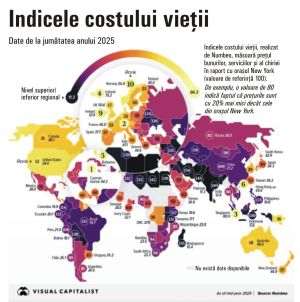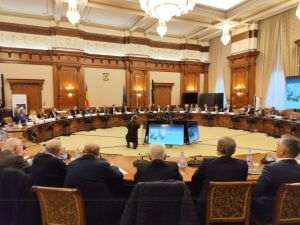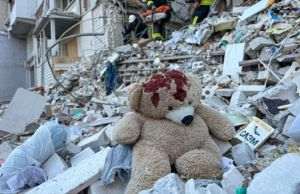Discussions about the laboratory creation of Sars-Cov 2 that led to the Covid-19 pandemic and about the immediate appearance of anti-Covid vaccines are simple assumptions, Dr. Adrian Marinescu, epidemiologist and medical director of the National Institute of Diseases, told us Infectious "Prof. Dr. Matei Balş" from Bucharest.
Adrian Marinescu stated: "If we refer to viral infections, we are talking about families of viruses that have always existed. For example, the coronavirus has always been around and infects both humans and animals. Mutations are a permanent process, because all viruses undergo mutations. Discussions in the public space regarding the so-called artificial, laboratory mutations are a type of discussion that I don't know if we can call them "can-can". Having no information in this direction, we can only come up with guesses. From a scientific point of view, mutations exist in every type of virus, and for a virus - for example Sars-Cov 2 - to become a public health problem, some factors are needed that make it more contagious, because in finally, the public health problem comes from the number of people who get infected".
The medical director of the Matei Balş Institute told us that with regard to Sars-Cov 2, the problem is not related to virulence because the respective virus did not have increased aggressiveness. "If we compare it with other viruses from the same family, I remind you that Sars-Cov 1 or SMERS were much more aggressive and the probability of having severe forms was much higher. The problem with Sars-Cov 2 was that it is very easily transmitted. When a virus is transmitted very easily, this means that it reaches everywhere, regardless of borders, and this means a pandemic: number of infections in a short interval", the epidemiologist continued.
Regarding the rapid appearance of anti-Covid 19 vaccines after the outbreak of the pandemic, Dr. Adrian Marinescu stated that the debates in the public space are simple assumptions, because there is no official information in this regard (ed. - of a link regarding an appearance concomitant of a disease with the pharmaceutical product related to its treatment).
Dr. Marinescu specified: "The respective debates are not supported, because it is absolutely logical, obviously, that in a complicated situation, emergency, war, etc., everything will move faster, including in the pharmaceutical industry. In the end no one invented any new medicine and no new vaccine. Things started from a previous experience, from Sars-Cov 1. No one said that we didn't want to have years or more testing to get a drug, but we were in a situation similar to from the front, when you have to intervene to save the wounded, even if you are not in an operating room equipped with the necessary equipment. It's about what you can do in such a moment, to somehow intervene in support of the person who is suffering. When you have a public health problem, there is a connection between the appearance of the virus and the appearance of the vaccine or a treatment because the medical world has a quick reaction, much better, because it has to act quickly to solve that problem. Even if he doesn't have the time to make a product under normal conditions; you have a pandemic, you have to intervene then, what can you do".
His Lordship also told us that the increase in the occurrence of infectious diseases in recent years is the result of several factors, including global warming, which has increased the risk of having such diseases even out of season, and complicated situations, such as war, which can lead to the re-emergence of diseases that were not eradicated but were considered extremely rare or diseases of the past.
Adrian Marinescu concluded by saying that, apart from smallpox which has been eradicated, the rest of the infectious diseases have a risk, even if sometimes small, of reappearing under certain conditions, such as poor hygiene in the front area in Ukraine or in other parts of the world.














































